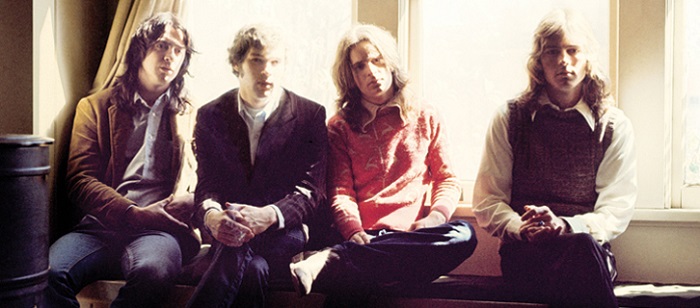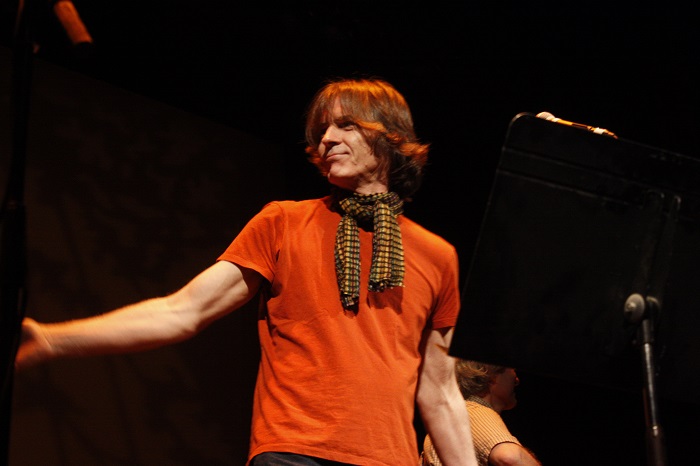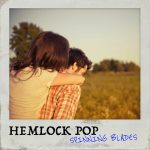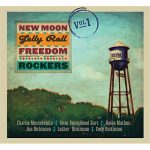
By Kevin Korber
For a while, it seemed as if the story of Big Star would never have a happy ending.
Formed with high hopes and aspirations in 1971, the Memphis power-pop quartet became commercial also-rans following a string of bad luck and poor decisions on the part of their record label, and that’s where the story should have ended…except it didn’t.
Rather than fade into the ether, Big Star have only grown in stature as time has passed. The work of Alex Chilton (guitar/vocals), Chris Bell (guitar/vocals), Andy Hummel (bass) and Jody Stephens (drums) has since become a template and inspiration for bands like R.E.M. and the Replacements (who even went so far as to name a song after Chilton) while winning new fans each day. The cult of Big Star still lives on, even though three of the band’s four original members are no longer here (Bell died in 1978; both Chilton and Hummel died in 2010). Stephens, for his part, isn’t all that surprised about the group’s eventual success: “I always thought the songs were great. It was just a matter of people finding them.”

Because of his previous taste of stardom as the lead singer of the Box Tops, it’s easy to think of Big Star as Chilton’s band, but it was actually Chris Bell who gave the band its artistic direction at their start. While Chilton spent his post-Box Tops days in New York immersing himself in the city’s still-active folk scene, Bell and his bandmates were learning the ins and outs of recording from John Fry at Memphis’ Ardent Studios, with Bell forming the idea of the kind of band he wanted to be in.
That band became Icewater, featuring Bell, Hummel, Stephens and Steve Rhea. A devout Anglophile, Bell’s songs owed much to the British Invasion rather than the harder-edged rock that was becoming popular at the time. Things changed, though, when Rhea left and Chilton came into the fold. “Chilton was part of the folk scene in New York, and you certainly hear his experiences there on the folkier stuff on #1 Record [Big Star’s 1972 debut album],” Stephens said. “Along with his great voice, Alex brought a style of guitar playing that was complementary to what we wanted to do.”
Even though Bell was the early driving force behind Big Star, #1 Record is quite a collaborative effort. “They would bring ideas in and work in a collaborative way,” according to Stephens, and the results emphasized the pair’s love of British rock and folk. Still, Bell remained the most driven to get the album done. “‘Focused’ would be an understatement when it came to Chris in the studio,” Stephens said. “He would spend hours and hours trying to get the right performances and the right sound, both with his guitar and his vocals.”
However, Bell quit in late 1972 and Big Star was no more—until a gaggle of rock critics made Chilton and company change their minds and carry on without Bell: In 1973, over 100 writers gathered in Memphis for the first ever Rock Writers Convention. While the convention never accomplished its goal of organizing music writing into a stable profession, it did bring Big Star back together as a creative unit.
From the get-go, it was clear that the new power-trio version of Big Star would be different. “Things got a little edgier,” Stephens said. “With the absence of that fourth member, it opens up that space in the music that you can take advantage of. But it changed how we played by necessity, and there was a lot more work for Alex shouldering the lead and rhythm guitar parts.”

Big Star becoming a three-piece also meant that Chilton would invariably take center stage, though Stephens is quick to point out that Chilton “was always looking to collaborate with people.” Make no mistake, though: Radio City is very much a showcase for Chilton as a songwriter. From the sweet pop of “September Gurls” to the hard rock of “Mod Lang,” the album found Chilton expanding his songwriting palette, but label mismanagement meant that Radio City, like its predecessor, would fall on deaf ears.
That should have, once again, been the end for Big Star (save for the fractured postscript that was Chilton and Jim Dickinson’s attempt at a third album, Third/Sister Lovers). But astute record collectors thought otherwise, though, especially those that went on to form bands themselves. By 1993, Big Star had received a fair amount of mainstream attention with the aforementioned Replacements song and with the Bangles’ hit cover of “September Gurls.” It was enough to convince Chilton, who had long considered Big Star to be a finished chapter in his life, to reunite with Stephens for a few one-off performances with Jon Auer and Ken Stringfellow filling in for the deceased Bell and the uninterested Hummel. This version of the band would tour for 16 years and release one album (In Space) by the time Chilton passed away in 2010.
Through it all, Stephens—who still performs Big Star’s Third/Sister Lovers as part of an ensemble spearheaded by Chris Stamey and featuring R.E.M.’s Mike Mills—remains just a little taken aback by the cult surrounding his old band: “I just want to know where people found out about these records.”







[…] Fry, the founder of Ardent Studios and producer who worked frequently with power-pop cult heroes Big Star, has died, according to a report in Memphis Commercial Appeal. He was 69 years old. Fry passed […]